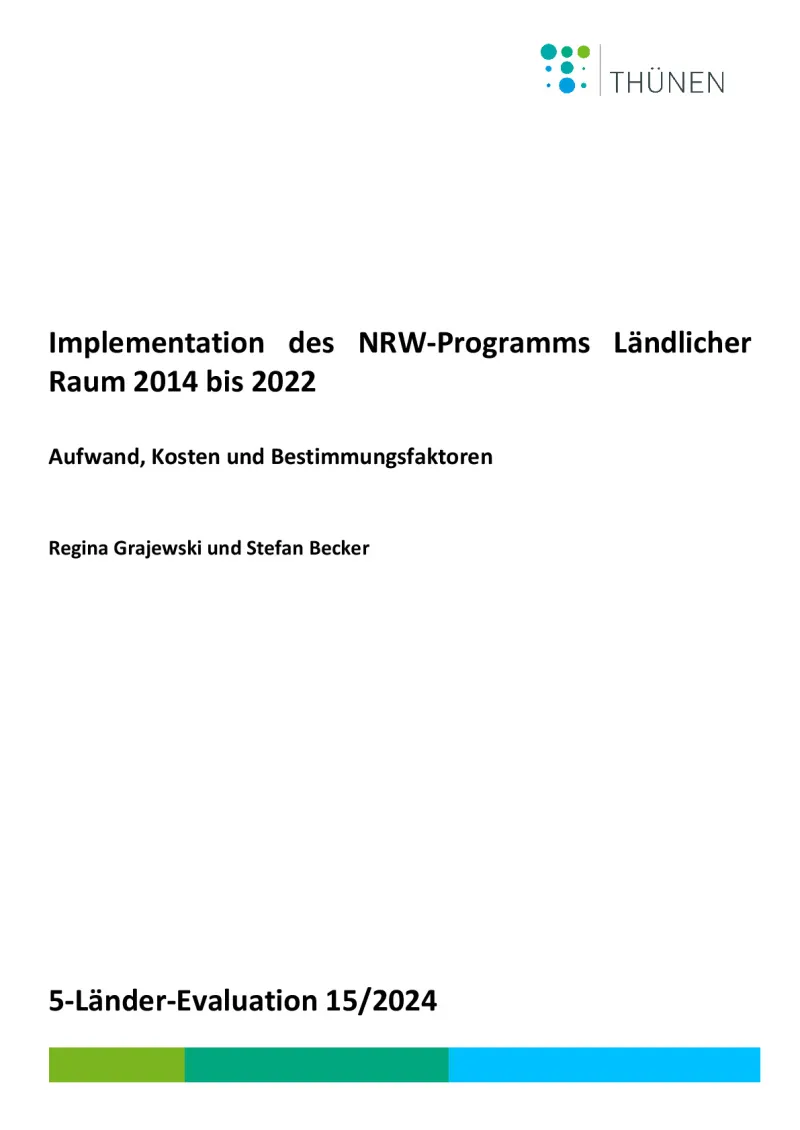Implementation of the North Rhine-Westphalia programme: administrative effort, costs and determinants
- Evaluation
- Jobs, Growth and Equality in Rural Areas
- Agricultural Productivity
- Evaluation
- Economic impacts
- Socio-economic Impacts
he report presents and discusses the efforts and costs associated with implementing the North Rhine-Westphalia Rural Development Programme from 2014 to 2022
- Germany
- 2014-2022
- Sectorial impacts

The report analyses and discusses the implementation costs of the North Rhine-Westphalia (NRW) Rural Development Programme 2014 2022. 'Implementation' refers to all activities carried out by the state administration or third parties to administer the programme in compliance with EU and national law and to achieve the funding objectives through promoting relevant measures and projects.
As part of the ongoing monitoring and evaluation of the NRW rural areas programme (2014-2022) and the other three programmes in the five-state evaluation, it was agreed to conduct another implementation cost analysis (IC analysis) as part of the detailed concept for the evaluation plan. The IC analysis determines the effort required by the implementing administrations, calculates the costs and identifies the main factors that determine the effort/cost level.
The questions guiding the findings of the IC analysis result from the specifications in the detailed concept for the evaluation plan for the North Rhine-Westphalia rural areas programme 2014-2022:
- How high are the public costs associated with programme implementation?
- What factors determine the cost of programme implementation?
- What optimisation potential can be identified?
The data basis of the report is a written survey of the implementing bodies, along with qualitative interviews, to validate and reflect on the survey results.
Absolute implementation costs have increased compared to the previous funding period (2007-2013). However, the costs have remained constant in relation to the amount of public funds spent. Roughly 15% of the absolute costs are linked to programme overheads, while 85% arise at the operational level, including designing support measures, authorising and controlling specific payments.
Important factors affecting implementation costs include the portfolio of measures, the overarching regulatory framework, organisational structures and IT.
Author(s)
Regina Grajewski; Stefan Becker